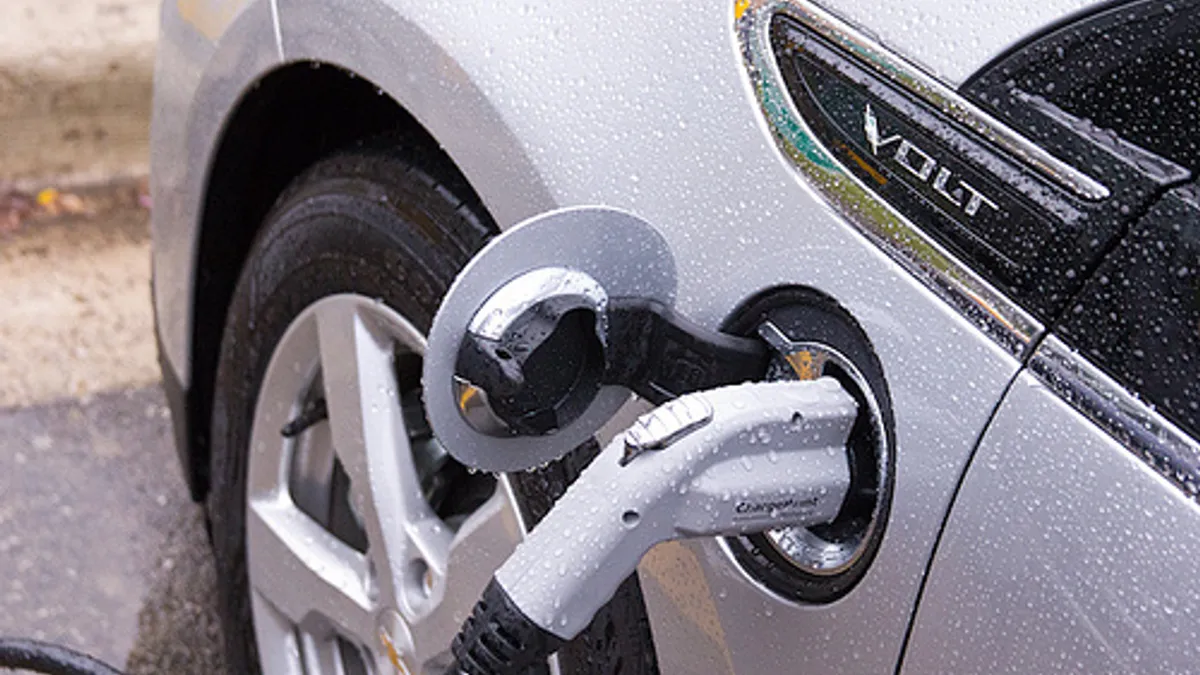Dive Brief:
- Siemens Energy Management Division and Duke Energy have completed an 18-month effort to reduce the cost and expand electric vehicle (EV) charging technologies, Renew Grid reports.
- Siemens provided residential electric vehicle supply equipment to demonstrate the ability to monitor status, report energy use, and be controlled locally from the local area network and from the cloud.
- The vehicle charging network was shown to be accessible by web-connected computers, smart phones and tablets, allowing the EV owner to better monitor the charging status and schedule.
Dive Insight:
Using a Ford Fusion Energi Plug-In Hybrid, Siemens has provided the first Underwriters Laboratories approved residential electric vehicle supply equipment to demonstrate the ability to monitor status, report energy use, and be controlled locally from the local area network and from the cloud.
“This demonstration marks a turning point for the EV industry and proves the tangible benefits of bringing advanced EVSE technologies into the home and the power marketplace,” said Barry Powell, head of Siemens Low Voltage & Products. “Intelligence in EV charging stations means homeowners can reduce the cost of charging up to 60% by automatically charging during low energy rate periods, where such programs are available. Utilities can shift loads off critical peak periods to avoid the need for new generation sources.”
The demonstration was funded as part of a grant received from the U.S. Department of Energy’s Office of Electricity Delivery and Energy Reliability.
“As EVs gain in popularity, it will be important for both drivers and utilities to have improved information — making charging more available and cheaper," said Mike Rowand, director of technology and development at Duke Energy.














